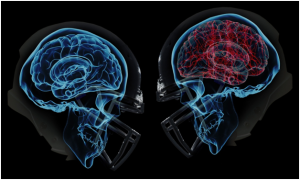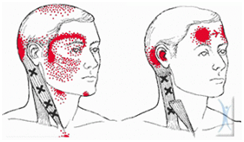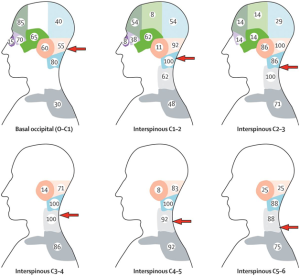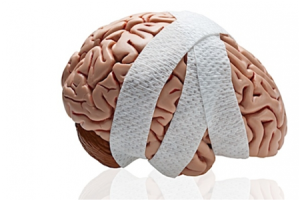Health Talk: Have you ever had a Concussion?

A concussion is an injury to the brain that changes the way your brain functions. The effects are usually temporary and include headaches, trouble concentration, memory loss (amnesia), balance and coordination.
Concussions are usually caused by an impact to the head but can also occur when the head and upper body are violently jarred. Most concussions do not result in loss of consciousness. This allows concussions to plague more recreational athletes because they don’t realize they have one.
Concussions are common, especially if you play a contact sport such as hockey. Each time you get a concussion, it’s your brain that has to heal. Most concussions are mild and people can recover fully.
The most common symptoms after a concussion are headache, memory loss and confusion. Other symptoms can include:
– loss of consciousness
– feeling of pressure in the head
– a fog like state of mind – confusion
– appearing dazed
– forgetting what happened
– dizziness
– double-vision
– sensitivity to light
– seeing stars
– nausea
– vomiting
– slurred speech
– slower response to questions
– fatigue
These symptoms can manifest immediately or over the next few hours up until days after an injury. In children – this can be a change in personality – lack of interest in favourite toys/foods, increased irritability and crankiness, loss of balance and unsteady walking, and excessive crying.
The Cause
After hitting your head – the force of the impact causes your brain to hit against the inside of the skull. This movement causes brain cells to stretch and or tear changing their electrical and chemical balance. This change is critical to their function and communication which in turn gives us the many symptoms of a concussion. After an injury the brain is left in a highly stressful state where it begins to heal itself.
A concussion is essentially an energy crisis within the brain. After an injury – the brain will try to heal itself – which by nature demands a lot of energy. This is why the single most important thing you can do if you think you are suffering a concussion is to GET REST. Rest is both mental AND physical rest in conjunction to addressing any associated neck injuries you may have suffered.
After a single concussion – there is a window of brain vulnerability – this is when the brain is in its healing state and demands the most energy. This is usually from day 3-7 after an injury. If you suffer a second head impact during this time your concussion will get worse. This can prolong proper complete recovery up to 6 months to 2 years.
Associated Neck injury
Anytime there is enough force for you to have a concussion – there can be an associated whiplash through the neck. The amount of force to allow your brain to slosh into the inside of your head is enough to irritate or cause some issues into the neck. Sometimes some of the symptoms you think are a concussion can actually be coming from your neck!
How can I help?
I can assess you to see a baseline in your balance and function as well as address any musculoskeletal issues (muscle, ligament, joint, nerve) in the neck after an injury. After an assessment I can explain to you what is going on and the plan to achieve a full recovery – including exercise to make your neck stronger!
Dr. Jon Leung, DC


My sister had fallen over her dog gate carring two cups of coffee. One leg got caught on the gate she was twisted as she fell over in the hall. Her shoulder and collar bone seemed to be the problem for a year. Along with neck pain. But now she has a hard oval knot at the base of neck .its hard and severely painful. What could it be.